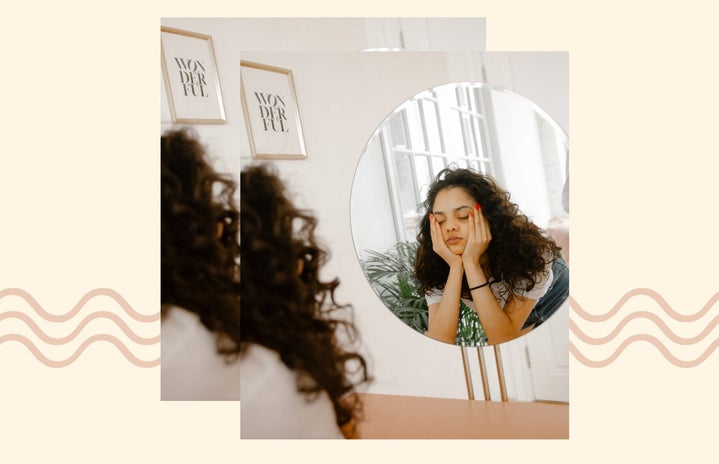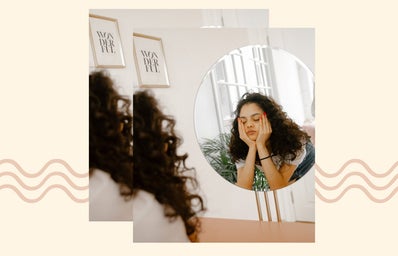Around the world, more and more Black (and in South Africa, Coloured) women are embracing their natural hair. I feel like this stems from two points: people are coming to understand that Eurocentric beauty is not the only kind of beauty that exists, and that women have come to love their natural hair when they are at university. I am not sure if it has to do with trying to become your most authentic self, or perhaps being separated from familial pressures to keep your hair a certain way. Either way, once you start your natural hair journey, you soon start to realize that it is not the most linear path and it can be an exhausting journey. I have been natural for about seven years, but wash day still gets the most of me – and let us not talk about the prices of these natural hair products. I am constantly trying to find ways to just simplify my hair routine, but still allow it to flourish in all its glory. So, if you are in the beginning of your journey or just trying to switch things up here are some ideas.
- Moisture is key!
-
As we know, curly and afro textured hair cannot be treated as if it were straight. Due to the kinks in the hair, it is more prone to dryness and breakage because the natural scalp oils cannot travel down the hair strand. So, the whole idea that “Black hair cannot grow” is simply all a myth. One’s hair is constantly growing, but it may appear to not be because it is continuously breaking at the bottom. To retain length, it is so important to keep your hair moisturized! Curly haired people tend to not wash their hair as often to keep some of the natural scalp oils. Additionally, water is the number one way to moisturize your hair. When using a moisturizing agent ensure that water is the number one ingredient listed. Remember to also lock in the moisture with either an oil or a butter cream. The oil itself does not add any moisture to your hair, but does ensure that any moisture does not evaporate and leave your hair feeling dry. Oiling your hair is important for a healthy scalp, but make sure you use one that works for you. Protective styling is also a great way to retain length as these styles are usually low manipulation hairstyles.
- Individualize your hair regimen
-
There is a tonne of information out there on what you should and should not do with your natural hair, and it can get very overwhelming. I always tell people to look at their own hair and observe which products and techniques work best for them. I often find that, in the natural hair community, if someone does a particular technique, they will take that as the holy grail. It is also important to take into consideration other factors like your hair type, hair porosity and what products and techniques you have access to. For the first 3 years of my journey, I lived in a country that did not cater at all for people with curly or afro textured hair and at the time Dischem and Clicks also did not sell any natural hair products. I improvised a lot and just used the products that were available, and my hair turned out fine. Do not feel like you need to go out and invest in the most expensive products, because if you do not know how to effectively use them, you will end up wasting your money.
- Create your own products
-
Whenever I am at Clicks or Dis-Chem, I am always so flabbergasted at the prices of these natural hair products. Like I said earlier, I did not have access to any products that were catered for my hair during the first few years, so I ended up making my own products. One of my favourite channels is Whitney aka Naptural85 on YouTube. She has been on her natural hair journey for years and has a plethora of recipes for hair products available on her channel. I find that, by making your own products, you can create them according to your hair’s needs and you end up saving a lot of money as well. For me, there is also some comfort in knowing what exactly I apply to my hair in case I have a reaction, and through a process of elimination I can figure out what my hair likes and does not like.
I think people forget that the natural hair community started to encourage Black people to fall in love with their natural hair, to stop the politicization of Black hair and teach women how to take care of their hair. However, issues associated with texturism still thrive within the community and defeat the whole purpose of the natural hair movement, which ultimately results in a lack of representation. Natural hair product companies rarely cast women with 4C hair in their campaigns and again paint the idea that certain (looser) textured curls are deemed as more beautiful. The take-home message is to ensure that you develop a hair regimen that works for you and to not be fooled by the media in thinking that your hair texture is bad, or that you are doing something wrong. I believe that the natural hair movement is also critical in raising generations of girls who, from a young age, are taught that they are beautiful just as they are.


